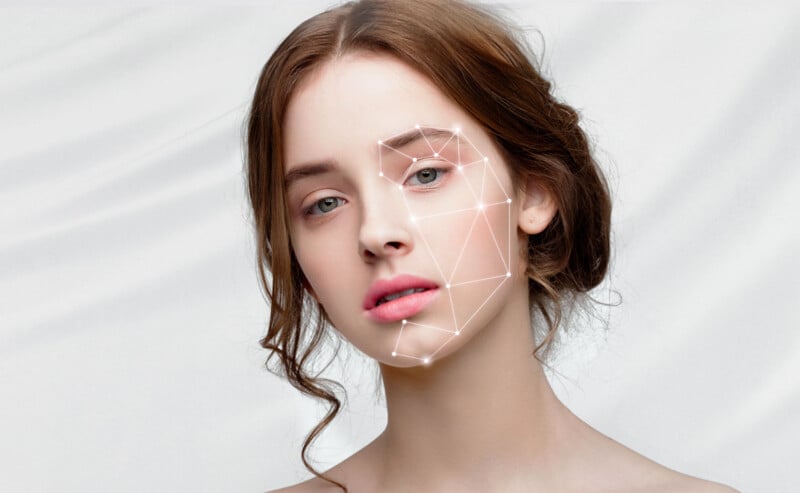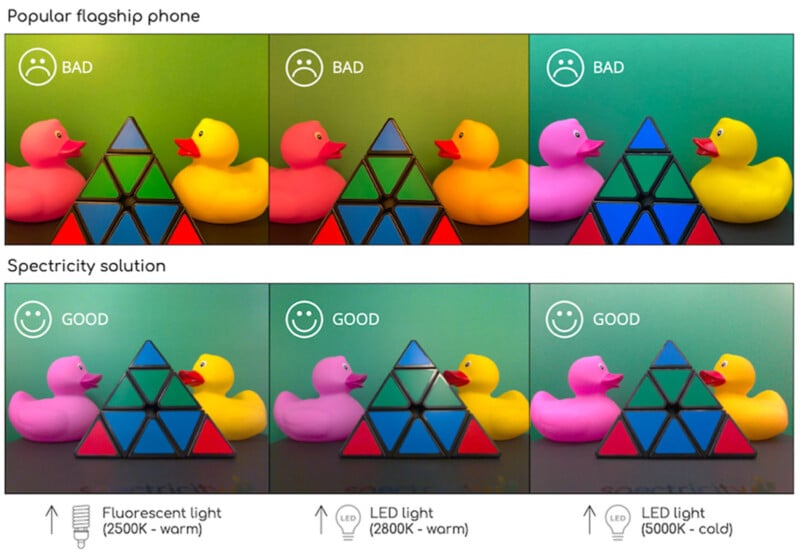![]()
Inaccurate skin tones have been an issue in photography for as long as photography has existed. Even as camera technology has improved by leaps and bounds, skin tone issues persist. Two technology companies may solve the problem once and for all, albeit inadvertently.
As Digital Camera World reports, Lululab and Spectricity are combining their unique technologies to develop image-based skin care analysis technology.
![]()
However, while not built explicitly for typical photography — unlike Google’s novel Real Tone for Pixel program which informed much better skin tone representation in Pixel smartphones — there’s something interesting happening here because for image-based skin care analysis to work at all, it must be highly color-accurate, something many photographers care deeply about. It’s impossible to deduce anything about skin dryness or redness if a device cannot accurately depict an individual’s precise skin tone, for example.
Like most things novel in the tech field, the collaboration relies on artificial intelligence technology. In this case, Lululab has collected and analyzed a vast data set comprising skin data from two million people. The platform’s proprietary AI algorithm detects lighting conditions and authentic skin tone to evaluate a person’s skin health across 10 parameters, including sebum, inflammation, wrinkles, redness, pore size, pigmentation, dark circles, non-inflammatory pimples, skin tone, and skin deflection.
 Credit: Lululab
Credit: Lululab“Check your skin condition accurately with only a single snapshot within seven seconds,” Lululab promises, adding that its platform offers 92% accuracy, as determined by an independent professional rating institution. The app is in development and not yet available.
Spectricity comes in through its multispectral imaging technology. A typical image sensor, like the one found in devices ranging from a smartphone to a professional interchangeable lens camera, sports an RGB sensor, which captures data across three channels: red, green, and blue. Spectricity’s fancy image sensor captures light data across 16 color channels, including wavelengths of light in the visible and near-infrared spectra.
With its remarkable range, Spectricity’s sensor delivers significantly more accurate color, including concerning skin tones. Through its collaboration with Lululab, Spectricity aims to provide additional insights into skin health.
 Credit: Spectricity
Credit: Spectricity“We are very excited to explore skin care applications of our multispectral technology with Lululab,” says Glenn Vandevoorde, CEO of Spectricity. “Lululab’s unique AI technology is well-suited to take advantage of the detailed spectral information from our sensors and revolutionize the field of personalized skin care.”
“The small size of Spectricity’s sensor allows us to integrate the solution in mobile consumer devices and observe detailed skin information that was previously hidden from normal cameras. With this technology we expect to provide enhanced recommendations and advice with higher detail and accuracy,” adds YongJoon Choe, CEO of Lululab.
This is not the first time technology companies have developed new ways to use imaging in healthcare in recent months. Beyond the obvious fact that most camera makers also operate healthcare segments, scientists in China recently demonstrated that using thermal cameras as part of routine check-ups can provide valuable insight into a person’s health.
While Lululab and Spectricity are clearly focused on skin care analysis technology, it’s demonstrably the case that improved color accuracy, including modes built using AI, could result in cameras doing a significantly better job photographing people with diverse skin tones.
Image credits: Featured image licensed via Depositphotos.



/cdn.vox-cdn.com/uploads/chorus_asset/file/25242409/20230608_Palworld_Screenshot_02.png)



 English (US) ·
English (US) ·